For any student of race in America, Spike Lee’s Do The Right Thing is required viewing. The film, set in Brooklyn in the 1980s, humorously and rawly dissects what it means to be black in America, especially in the wake of police violence. For decades, the unapologetic anthem to what it means to be American — whether or not a white supremacist society acknowledges you as so — has been unparalleled.
Until this month.
Last week saw the public release of Gook, a Sundance alum and winner of Sundance NEXT FEST, Adobe’s freshman effort to elevate the voices of the seemingly voiceless filmmakers. The film, which takes place in a predominantly African-American Los Angeles neighborhood a few miles from the Rodney King riots of 1992, puts the themes just scratched at in Spike Lee’s masterpiece under a microscope, discovering an entire way of life unseen on screen before.
The story focuses on the sons of Korean storekeepers, referred to by the film's black community as "gooks" — an anti-Asian slur which translates in its native tongue to "country." It's the story of what it means to find a place in the United States, and what it means to be part of a minority group often overlooked by the media.
"It’s a feeling of not belonging anywhere, and especially as a minority in the U.S.," writer-director Justin Chon, who also appears in the film, said. "I’m also somebody with no place."
Chon's story depicts men who sing, fight, bargain, dance, and defend — but most boldly, feel. Much like Academy Award-Winner Moonlight, Chon portrays men at their most vulnerable. He strove to create moments where, “You see the crack. You see them be human beings," Chon said.
In Gook, black and Korean men alike throw punches at each other and themselves, mourning their own helplessness, and are united by their brotherly love of women. The female protagonists they admire don’t need to be protected. Gook's landscape incorporates savvy, outspoken black women with a deep sense of self and family, from a young black girl, to shoe-shoppers, to a concerned older sister.
The portrayal of women in this film is empowering, but it is not nearly as groundbreaking as its depiction of Asian men. According to Chon, “Asian men, the way they’re portrayed in media is not as men. They’re usually effeminate and they’re usually not portrayed as having real wants and needs, so that was the first thing I wanted to change.” Gook takes this on head-on with a rugged lead, Eli, who takes punches and stands back up over and over again.
"I wanted to make [the characters] three-dimensional," Chon said. "There’s a power, you know, to showing Asians in this light that is just very grounded and blue collar in terms of masculinity."
But rather than showing a hyper-masculine counterpoint to the media’s depiction, Chon plays an Asian protagonist who is physically strong and sexy yet often emotionally shaken. His best friend is an aspiring R&B singer. Together, they dance like goons, play with kids, and sell women's shoes — all while fending off gang and gun violence. Chon's decision to depict masculine men with sensitive attributes comes from his belief that humanity supersedes gender norms. “I don’t care how masculine you are, if you have an incredibly hard day and something heavy happens, you’re going to go home to cry.”
Chon has certainly experienced his own struggles as a young minority filmmaker in Hollywood.
“I haven’t received any mentorship. The only mentorship I received was me bothering the shit out of people," Chon said, acknowledging that maybe pestering might be the best route. “Asians tend to feel invisible. If they don’t feel included they need to make some noise and make themselves included.”
Gook was edited on Adobe Premiere Pro and is now in theaters. Watch an exclusive interview on the film below:


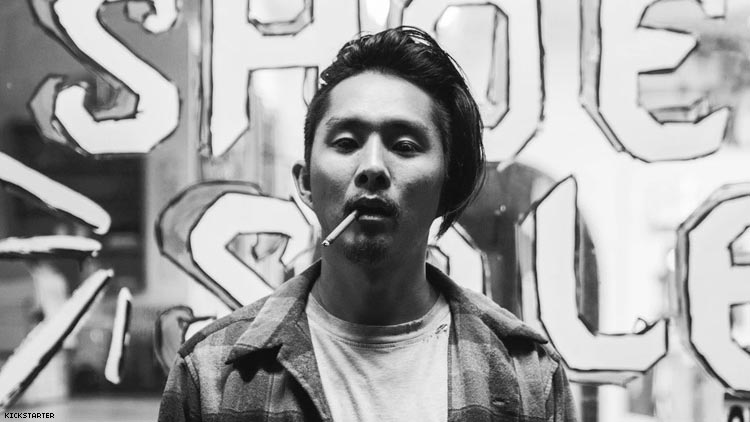


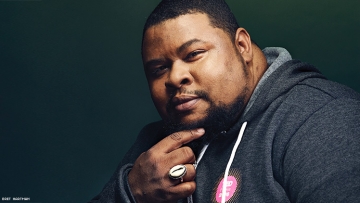
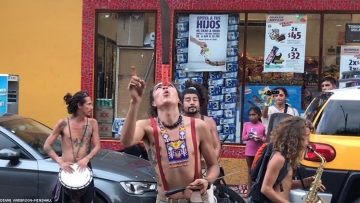
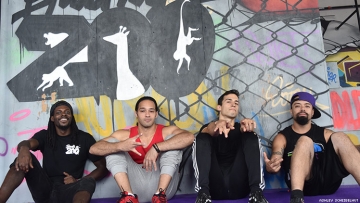
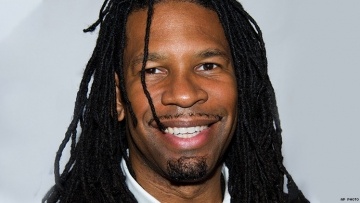






READER COMMENTS (